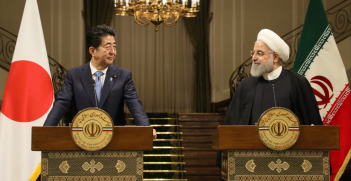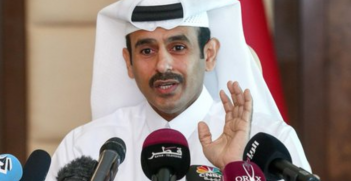Uncertainty, Blunders and Brashness: Saudis Seek Results in 2018

The difference between a maverick and an ill-conceived foreign policy can often be a fine one, but recent ambitious Saudi maneuvers have tended to lean toward the latter. What can we expect from the Kingdom in 2018?
The turning of 2018 has seen the intensification of many ongoing political issues and crises in the Middle East. Within this, the Saudi Kingdom continues to participate as a dominant actor shaping, determining and responding to regional events in kind. But with a set of foreign policies that in many ways represent serious breaks from the past thanks to the dominant influence of Crown Prince Mohammad bin Salman, how are the desert kingdom’s regional fortunes looking in the New Year?
Nouveau foreign (mis)adventurism
A signature of the current Saudi administration noted by countless observers has been a propensity for risk taking and a willingness to shake up the existing status quo in foreign policy in order to push back against the wider push by Iran to attain a hegemonic arc stretching from the Gulf and across to the Levant.
This has represented a significant break from previous Saudi leadership, which was typified by a tendency towards risk-averse policy making and a preference for employing and supporting proxies in dealing with regional competitors and threats, rather than confronting them head on. This trend began to ebb in the twilight of the Abdullah administration, with the unprecedented Saudi-led military intervention into neighbouring Bahrain, but has intensified significantly since Mohammad’s emplacement into a series of key roles in the state’s policy making architecture.
Regardless of its boldness, however, the new Saudi posture in foreign relations appears to have done far more harm than good, both in terms of those impacted by it, as well as in its impotence in achieving its desired strategic outcomes. Despite occupying a senior seat on the UN human rights council, for example, the Saudis have paradoxically managed to usher in one of the most disastrous humanitarian crises in the 21st century with their ongoing military quagmire in Yemen.
This intervention originally began as an attempt to prop up a friendly government in Sana’a and pushback Houthi rebel forces on the verge of a national takeover. Today, however, there appears little hope that a pro-Riyadh administration is likely to re-emerge from the turmoil and despite being battered and suffering some significant setbacks, the Houthis remain well entrenched in the country’s west and have shown themselves capable of carrying out symbolic reprisals deep into Saudi territory.
Meanwhile, Saudi and Gulf Cooperation Council (GCC) forces continue to strike civilian targets, including hospitals and schools, on a daily basis with munitions designed to wreak havoc on the hypothetical mechanised battlefields of 1980s Europe, not an asymmetrical foe dispersed across a vast, mountainous terrain.
While such incidents could be (and typically are) claimed as unfortunate mishaps in a wider military campaign, the deliberate and obvious targeting of civilians by the coalition remains far harder for advocates to dismiss. Activities in this regard have included declaring the entire Sa’dah district a free-fire zone and the continual enforcement of a blockade on humanitarian aid on north Yemeni ports.
Combined, these and similar policies have led to a complete collapse of even the most rudimentary services inside Yemen. Today, the majority of the civilian population is food insecure, millions displaced, hundreds of thousands diseased with cholera, and tens of thousands are dead or maimed, primarily thanks to conditions imposed by the Saudis.
Amateur hour in the Saudi foreign ministry
Apart from instigating outright conflict, Riyadh has also ushered in a new era of political crisis vis-à-vis its peers in the region. Attempts to diplomatically and economically punish Qatar for its roguish foreign policy have largely failed to inflict any lasting damage on the small Gulf emirate. As it turns out, it can be very difficult to truly isolate a state with the highest global GDP per capita and which is integrally plugged into the global energy market. This unresolved standoff has only served to weaken the fragile bonds of partnership on the Peninsula. In dire reflections on this ongoing diplomatic crisis, some analysts are now describing the GCC project as effectively dead.
Similarly, the recent debacle in which the Kingdom effectively sought to kidnap Lebanon’s Prime Minister Saad Hariri and force him to resign his office to shift the Levantine state’s domestic policy relating to Hezbollah has been an abject failure. Such a dramatic break from the norms of international relations in the kidnapping of a foreign head of state was never going to be realistically viable and only demonstrated its architect, Mohammad bin Salman, as a diplomatic neophyte. Since his inevitable release, Hariri has naturally suspended his resignation, leaving the Saudis with significant social and political capital lost in Lebanon and the Hezbollah issue completely unresolved. For such a radical shift in policy, naught appears to have been gained for its instigators.
As one falls…
Despite the combative posture Riyadh has adopted in pursuing its regional security interests and the woes it has inflicted on the innocent, few of its bold new policies have paid dividends. Worse for the Saudi leadership, each of these blunders represent opportunity for Tehran, which only benefits with each Saudi misstep.
In Yemen, estimates place Riyadh’s military spending in the hundreds of millions per month, despite the army, air force and navy proving impotent in forcing a political resolution to the conflict. In the best of times this would represent an atrocious level of cost, but with the Saudi economy slumping into a recession last year and the unimpressive rollout of the Vision 2030 fiscal reform package, this represents a haemorrhaging wound for the Kingdom’s coffers.
In stark contrast to this, through the investment of just a few million dollars per year to their Houthi compatriots, the Iranians have ensured that their chief rival in the Gulf will remain bogged down in the Yemeni mire for the foreseeable future, losing men, treasure and prestige as every bloody day rolls by. For any student of geopolitics, the Iranian investment in the Yemen conflict has represented the most stunning of bargains in terms of cost versus benefits.
While the Salman administration had hoped that imposing punitive measures on Qatar would cause the small emirate to reduce its political ties to Iran, precisely the opposite seems to have occurred. Almost immediately following the Saudi announcement, Iran, along with Turkey, signalled a willingness to step into the vacuum left by the severing of Saudi ties and provide support for newly beleaguered Doha. By attempting to cut off Iranian inroads onto the Peninsula, Riyadh appears to have inadvertently opened a highway facilitating precisely the opposite.
What these and similar Saudi foreign policy blunders of the past three years illustrate is an increasing trend towards the erratic and the clumsy, with worryingly little apparent reflection on the full ramifications of such actions. By contrast, Iranian policy makers have been content to keep a considerably lower profile, pursuing wider policies of power consolidation in states like Iraq and Syria, while taking action opportunistically to increasingly common Saudi missteps. Riyadh has been firing wildly from the hip at the slightest hint of threat, whereas Tehran has been patiently lining up its sites for the perfect shot.
Reading the tea leaves as to what is in the near-to-mid term future of Saudi foreign relations remains extremely challenging in 2018. As the veteran Saudi watcher Bruce Riedel recently put it in a December lecture, predicting Saudi politics has become more complex than Kremlin watching at the height of the Cold War. Despite (and because of) this unpredictability, this year is bound for some significant Saudi-driven surprises and upsets in and around the Persian-Arabian Gulf; the hope is that none of them coalesce into something too catastrophic.
Dr Ben Rich is a lecturer in international relations and security studies at Curtin University.
This article is published under a Creative Commons Licence and may be republished with attribution.





